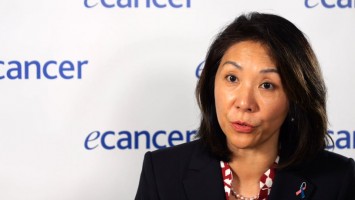PP: Today we are doing an Executive Board meeting for the R4HC MENA programme, which is Research for Health in Conflict in the Middle East and North Africa. We’re bringing together all our regional collaborators to discuss updates and activities on various work-streams to do with this project.
RS: We’re really excited, actually, that we have so many people here today on what is essentially our third major meeting, a year into the programme. We’ve brought together faculty from the American University of Beirut, Hacettepe University in Turkey, Birzeit University from Palestine and King Hussein Cancer Center from Amman in Jordan as well as a whole range of individuals who are part of our international advisory board drawn from as far afield as Australia. So we’ve got nearly 45 individuals here today and we’re having a really exciting two day programme looking at the work streams that we’re doing as part of the research capacity building and also taking stock of where we’re going to go over the next three years.
So what specific aspect of health are we primarily discussing?
PP: There’s a very general health of conflict affected populations, so these are people living in areas of armed conflict. Currently we have the highest number of displaced people globally since the end of the Second World War which is a global tragedy. So one of the aims of this grant is to address some of the health needs of these populations, so that could be non-communicable diseases, it could be other issues around accessing health systems in those areas but also in the neighbouring areas where they are currently in a refugee status.
RS: We’re looking as well to make sure of the sustainability of these programmes over the next three or four years. So we’re building and helping to build centres of excellence in various countries which are both hosting refugee populations but also the long-term view is how to conduct research actually within conflict situations themselves – Syria, Yemen, many parts of the Middle East and, indeed, many parts of the world in conflict. And how to actually have an ecosystem where you are able to conduct research that can change policy. So that’s crucial as well.
What kind of collaborations have been formed through this project?
RS: They’re major international collaborations, not just between the academic partners but between ourselves and non-governmental organisations like Médecins Sans Frontières. We’ve got the Union for International Cancer Control, the World Health Organisation, particularly the Eastern Mediterranean regional office which looks after the Middle East and North Africa, and a whole range of other embedded NGOs on the ground like Islamic Relief, Hand for Hand in Syria and Syria Relief. So this is a really strong, deep, multi-partner research capacity building programme.
So what are the next steps for the project?
PP: It would be great to establish regional centres of excellence in conflict and health research. Currently there are some centres doing some brilliant work but it would be good to get them in a very prominent role in terms of the global place as far as conflict and health research is taking place. Most of that work has been in sub-Saharan Africa, Latin America and Asia but the Middle East is a region which is highly neglected in terms of establishing a regional centre of excellence.
RS: We’re also looking to help build UK capacity within conflict and health. Traditionally in global health in the UK we’ve tended to focus on areas such as infectious diseases, child and maternal mortality. So conducting research in conflict and health is another massively crucial area and one thing that the UK can really shine in. But for that we really need the input and the engagement of the faculty we’re working with in the Middle East who have direct on the ground experience both in the academic sense and also our NGOs. So this is a real bilateral partnership and research capacity development.
Is there anything that you’d like to see coming out of a project like R4HC?
RS: One of the core things we’re looking for as well in the future is not just this research capacity building to improve the quality of the research, the impact on public policy in individual countries and through the non-governmental organisations, but we want to see tangible benefits to the general public in conflict ecosystems and, indeed, patients as well. One of the big challenges of this programme is to make it sustainable and actually to drive through the research capacity to new research and that new research to actually inform policy which leads to better outcomes for patients and the general population. So this is the start of a very long, focussed programme in the region but something that we look forward to actually expanding out to include other partners because this is an area of research need which goes well beyond the Middle East and North Africa. It’s something, from a King’s College London perspective, it’s something we’re really passionate about and really look to engage in sub-Saharan Africa and other parts of the world.








